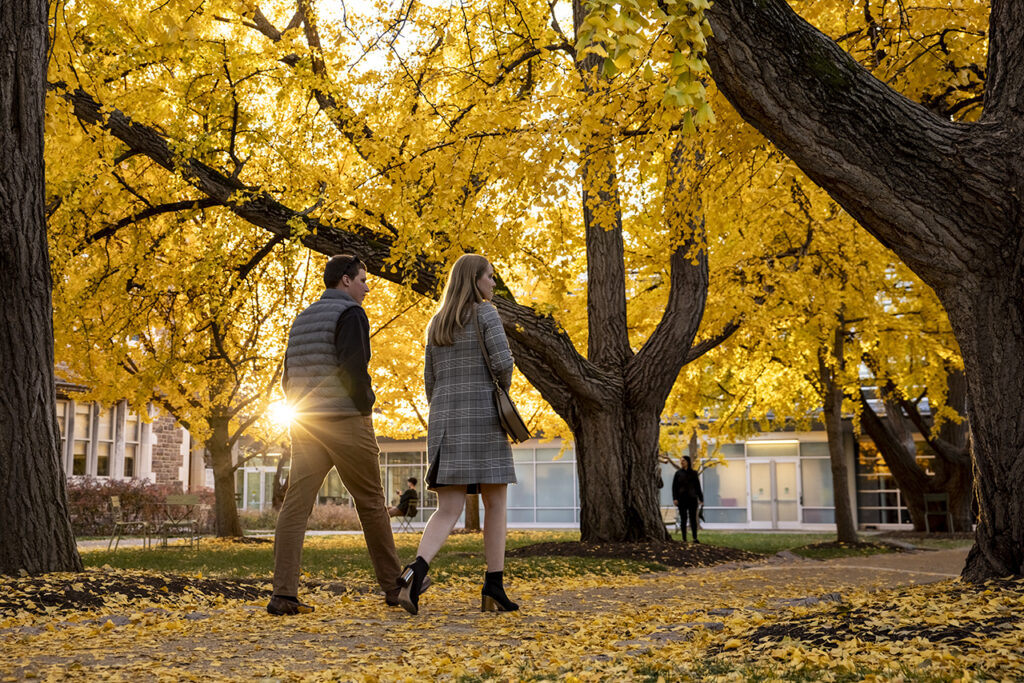WashU has been recognized as the NACUBO 2025 Excellence in Sustainability Award recipient.
WashU was recognized for its Arboretum and the multi-year effort to transform the Danforth Campus landscape, its biodiverse tree canopy cover and its commitment to integrate teaching and research into the Arboretum.
NACUBO, National Association of College and University Business Officers, annually recognizes a specific campus innovation, process, or program that advances environmental sustainability in higher education or progress toward a more environmentally sustainable future.
“WashU’s arboretum is an integral part of our university’s urban campus experience, and I’m honored that those who manage this valuable resource are receiving recognition,” said Nichol Luoma, WashU executive vice chancellor for administration and chief administrative officer. “The Arboretum is not only a teaching resource or a research laboratory. It also offers a respite for students, faculty, staff, visitors and our neighborhood residents who walk under its canopy as a part of their daily lives.”
The WashU Arboretum has more than 7,000 trees — 409 species, 864 taxa (including cultivars) and 44 threatened or endangered species. It is a recognized Level III arboretum accredited by the ArbNet Arboretum Accreditation Program and one of 20 Level III or Level IV recognized university arboreta in the United States and one of only three in the Midwest.
“WashU has developed one of the few Level III arboreta that are also interwoven within a dense urban campus,” said Phil Valko, assistant vice chancellor for Sustainability. “This offers a unique experience for not only our campus community, but also our neighbors and campus visitors, who frequently walk, bike or run through this species-rich educational environment in the heart of the St. Louis region.”
Tree selection at WashU has been driven by a desire to maximize species diversity. It prioritizes full representation of Missouri’s 153 native tree species, as well as planting trees that are native to Arkansas, Oklahoma and Texas to see how they perform in a changing climate.
The Arboretum also features a network of herbaceous native plants, edible plants, rain gardens, micro-prairies and pollinator habitat. Special collections of the Arboretum include clones of historic trees, including of a rare Native American trail marker oak dating from 1730 known as “Pathfinder” and four Basswoods whose parent tree lived on campus for more than 100 years before falling in a storm.
NACUBO also recognized the Arboretum’s research, education and outreach efforts. There are more than a dozen annual events – including general arbor walks, winter tree identification, foraging tours and maple tap/boil events.
Faculty and student research has included studies of soil pH and tree growth, tree density and soil fungal diversity, and antimicrobial properties of tree bark, as well as the development of a campus biodiversity inventory. Multiple courses engage with the Arboretum as part of their curriculum, including the project-based Sustainability Exchange, which has supported documenting the collection on trees.wustl.edu, partnering with local tribes to add Indigenous names to the website, and identifying outdoor spaces that support mental health.
In 2024, the Arboretum was joined by EnviroCorps members, who were part of the first nationwide AmeriCorps program solely dedicated to campus-based, community-led environmental stewardship. The EnviroCorps members support WashU’s Arboretum and local nonprofit Forest ReLeaf in its mission to expand tree canopy in low-income communities and are part of a larger cohort that supports the Green Labs program, energy efficiency for low-income households, and circularity programs.
